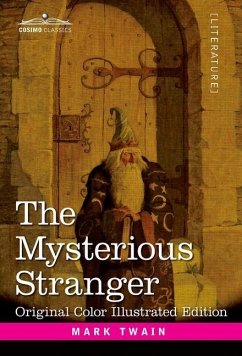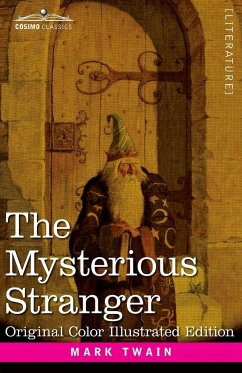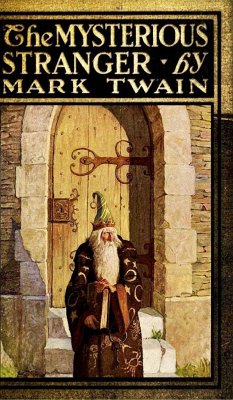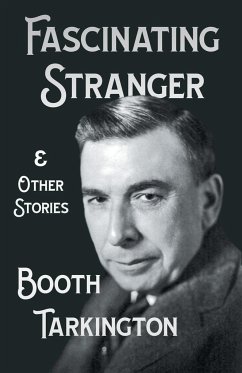
The Mysterious Stranger
A Romance
Illustrator: Wyeth, N C
Versandkostenfrei!
Versandfertig in über 4 Wochen
25,99 €
inkl. MwSt.

PAYBACK Punkte
13 °P sammeln!
"I know your race. It is made up of sheep. It is governed by minorities, seldom or never by majorities. It suppresses its feelings and its beliefs and follows the handful that makes the most noise. Sometimes the noisy handful is right, sometimes wrong; but no matter, the crowd follows it." -Mark Twain, The Mysterious Stranger (1916) The Mysterious Stranger (1916) is the third version of a story which Mark Twain worked on during his later life, but which was published posthumously by Albert Paine, Twain's biographer. This jacketed hardcover replica of the original edition of The Mysterious Stra...
"I know your race. It is made up of sheep. It is governed by minorities, seldom or never by majorities. It suppresses its feelings and its beliefs and follows the handful that makes the most noise. Sometimes the noisy handful is right, sometimes wrong; but no matter, the crowd follows it." -Mark Twain, The Mysterious Stranger (1916) The Mysterious Stranger (1916) is the third version of a story which Mark Twain worked on during his later life, but which was published posthumously by Albert Paine, Twain's biographer. This jacketed hardcover replica of the original edition of The Mysterious Stranger, with color illustrations by well-known American illustrator N. C. Wyeth, offers a mysterious tale about the visit of a teenage boy named Satan to a medieval Austrian village, Eseldorf. Satan claims to be an angel and nephew of the fallen angel with the same name. When he meets three local boys, he tells them about the future, and he transports them around the world showing examples of religious radicalism.













